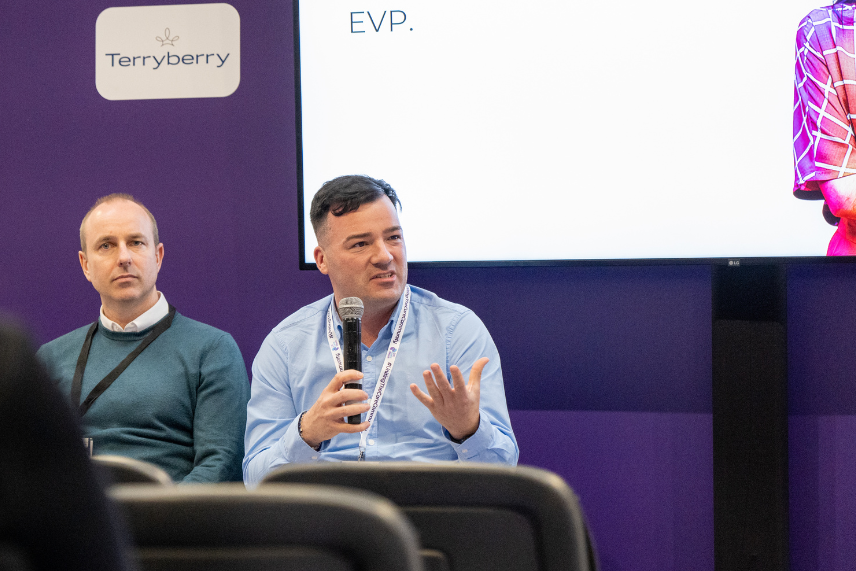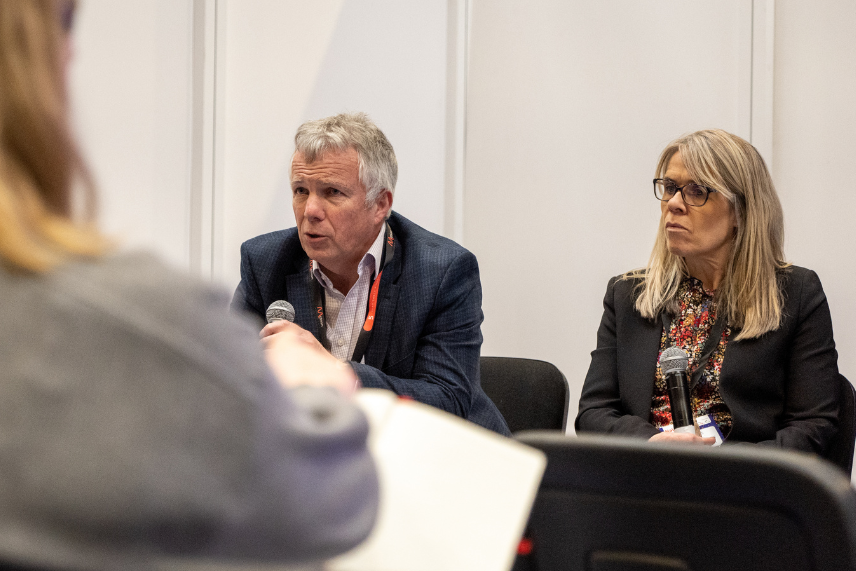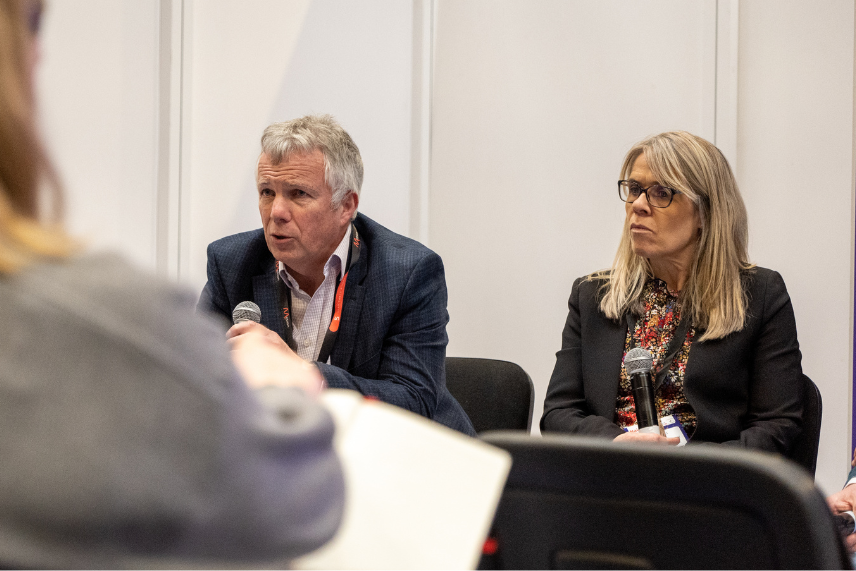What does a great candidate experience look like for health and social care recruitment? Here are three major priorities, with words of wisdom from five health and care recruiters on the frontlines.
Care organisations typically struggle with dropouts and candidate ghosting way more than other sectors. The healthcare market is very buoyant with high turnover and lots of competition, so candidates are often in-process for lots of roles at once.
Convincing jobseekers to stick with your process means delivering a great candidate experience. But what is a great candidate experience within the care sector?
We think there are three major prongs:
- Is your process easy?
- Is your process fast?
- Is your process human?
Let’s talk about each of them, sharing some words of wisdom from care recruitment experts with frontline experience tackling this issue.
With thanks to:
- Andrew Wood, co-founder of Home Instead, Hereford
- Ellie Higgins, Resourcing Manager for Mencap
- Paul Lundbeck, People Services Director at HCRG Care Group
- Rowan Marriott, former Head of Resourcing for Signet Healthcare and founder of Audience Link
- Ursula Jayes, co-founder of Relish Recruitment
The care candidate experience was a big topic we discussed in two recent webinars, as well as concrete tactics to boost candidate attraction and develop your EVP.
Watch them both on-demand here:
3 principles to get the care candidate experience right
1 – Is your recruitment process easy?
When candidates are applying for multiple roles, their mental bandwidth is split across every position. In other words, they’re spread thin. Especially if they’re also juggling current work.
If you make your process inconvenient or difficult to complete, many candidates simply won’t.
But even if applicants theoretically had endless spare hours, an easy process communicates that you respect their time and effort. If you want to communicate that you care about your people, that’s a must-send message.
Ten things to think about:
- Offer mobile-apply and social media apply
- Enable one-click CV import
- Allow candidates to attach supporting docs
- Design mobile-first application journeys
- Choose recruitment software that’s responsive on any device
- Offer anytime, anywhere video interviewing
- Empower candidates to self-book interviews
- Offer communication via SMS, not just email
- Allow digital contracts and signatures
- Automate reference collection
In the second webinar, Paul Lundbeck talks about how software helps HCRG Care Group keep the candidate experience at the heart of their processes. In particular, incremental changes like turning on Quick Apply for volume roles have made a big difference to the candidate experience.

(With Tribepad, candidates can create a profile, upload a CV, and apply for a job in under two minutes 👌🏻).
Resourcing Manager for Mencap, Ellie Higgins, also emphasises the importance of by asking for (and honouring!) communication preferences. Candidates are individuals: one person’s convenient is another person’s ‘how do I access email without a computer?’.
2 – Is your recruitment process fast?
Especially for entry-level or part-time roles, health and social care candidates often prioritise the opportunity that arrives first. Especially in the midst of a cost of living crisis, where picking up shifts and earning money fast matters to many.
James Pratt, Tribepad’s Health and Social Care Specialist, talks about how speed is often an underlying issue hurting recruitment delivery for care teams:
Sometimes care organisations pour more money into marketing and advertising when actually their problems stem from slow internal processes. Maybe they’ve actually got enough candidates coming in but they don’t get to them fast enough, so they lose out
Look for talent acquisition software with heaps of smart automation, to help you move candidates through your process faster. (Read how Tribepad helped Well Pharmacy decrease time-to-offer for specialist roles by 35% 😎).
That can include the likes of:
- Automated candidate comms
- Automated workflows that suit how you work
- Bulk actions
- Templates and cloning
- Multiple location jobs
- Job board integrations to quick distribution
- Speedy interview scheduling
- Killer questions and pre-screening questionnaires
- Automated checks
- Talent pooling and tagging
For example, HCRG’s Paul shares how complex internal contracts meant it could take the team upwards of forty minutes to produce one contract, due to the number of clauses they had to manually change.
Recruitment software should help you streamline and automate complexities like this, so you can get candidates through the door faster.
3 – Is your recruitment process human?
The biggest benefit of better recruitment technology isn’t really about technology. Sure, building faster, more convenient recruitment processes will inevitably translate into better recruitment delivery.
But the true value of recruitment software is about much more than streamlining processes. It’s about what your recruitment team can do with the time you get back. The extra time you can invest into conversations; the relationships you can build.

As Ursula Jayes, co-founder of Relish Recruitment, points out: “people apply to care because they care”. Or as Andrew expresses it: “we want to attract people with a heart, not just a heartbeat”.
The healthcare and social care sector is fundamentally about people – about sensitivity, empathy, and compassion. Our processes must embody the same values.
Co-founder of Home Instead, Andrew Wood, puts it nicely when he talks about the need to “cherish” candidates; “to make every candidate feel valued and special, more than just a number”.
Ask yourself:
- Do we take the time to understand what motivates each candidate, and can we genuinely deliver against those priorities?
- Could we do more to answer candidates’ questions and bring a career with us to life, especially if they’re new to the care sector?
- Do we really understand what makes someone a great fit? And also critical, what makes someone a poor fit, so we can minimise turnover?
…and finally, are you protecting or smashing the crystal?
Rowan Marriott, former Head of Resourcing for Signet Healthcare and founder of Audience Link, shared a fab analogy with us: treat candidates like a fine piece of crystal. AKA: don’t lob them from touchpoint to touchpoint and hope for the best.
He calls for a mindset shift, to review the candidate journey as one connected experience from resourcing to recruiting to onboarding to talent management.
Because ultimately, there’s no point ensuring one step in your process is convenient, fast, and human if the next link smashes the crystal.
However complex your internal processes and requirements (and we know, they’re often exceedingly complex), the real job is ensuring this complexity doesn’t trickle through to the candidate experience.
Tribepad is the trusted tech ally to smart(er) recruiters everywhere. Trusted by private and NHS healthcare organisations like Bupa, Signature, GCRG Care Group, Turning Point, NHS Professionals and Royal Devon University Healthcare NHS Foundation Trust, 25-million people in 16 languages use Tribepad.




